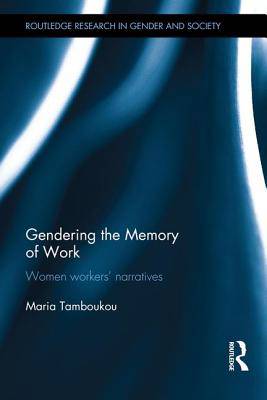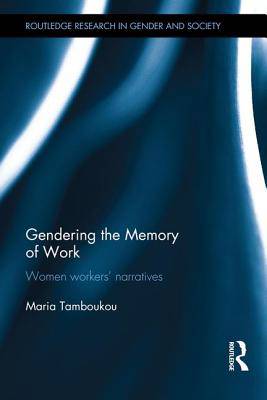
- Afhalen na 1 uur in een winkel met voorraad
- Gratis thuislevering in België vanaf € 30
- Ruim aanbod met 7 miljoen producten
- Afhalen na 1 uur in een winkel met voorraad
- Gratis thuislevering in België vanaf € 30
- Ruim aanbod met 7 miljoen producten
Omschrijving
This book explores gendered aspects in the memory of work by looking at auto/biographical narratives and political writings of women workers in the garment industry. The author draws on cutting edge theoretical approaches and insights in memory studies, neo-materialism and discourse analysis, particularly looking at entanglements and intra-actions between places, bodies and objects.
Tamboukou aims to enrich our appreciation of the role of women's labour history in the wider realm of cultural memory, as well as in the politics of women's work. The book addresses a significant gap in the literature by focusing on the memory of work from a gendered perspective. It also examines the relationship between workspaces and personal spaces: the intimate, intense and often invisible ways through which workers occupy workspaces and populate them with their ideas, emotions, beliefs, habits and everyday practices.
The book will be a theoretical and methodological toolbox for students and researchers in the interface of the social sciences and the humanities, as well as a vital resource in women's labour history. It will be particularly relevant for sociologists, cultural theorists, feminist scholars and social historians.
Specificaties
Betrokkenen
- Auteur(s):
- Uitgeverij:
Inhoud
- Aantal bladzijden:
- 192
- Taal:
- Engels
- Reeks:
Eigenschappen
- Productcode (EAN):
- 9781138842458
- Verschijningsdatum:
- 20/06/2016
- Uitvoering:
- Hardcover
- Formaat:
- Genaaid
- Afmetingen:
- 160 mm x 234 mm
- Gewicht:
- 453 g

Alleen bij Standaard Boekhandel
Beoordelingen
We publiceren alleen reviews die voldoen aan de voorwaarden voor reviews. Bekijk onze voorwaarden voor reviews.











